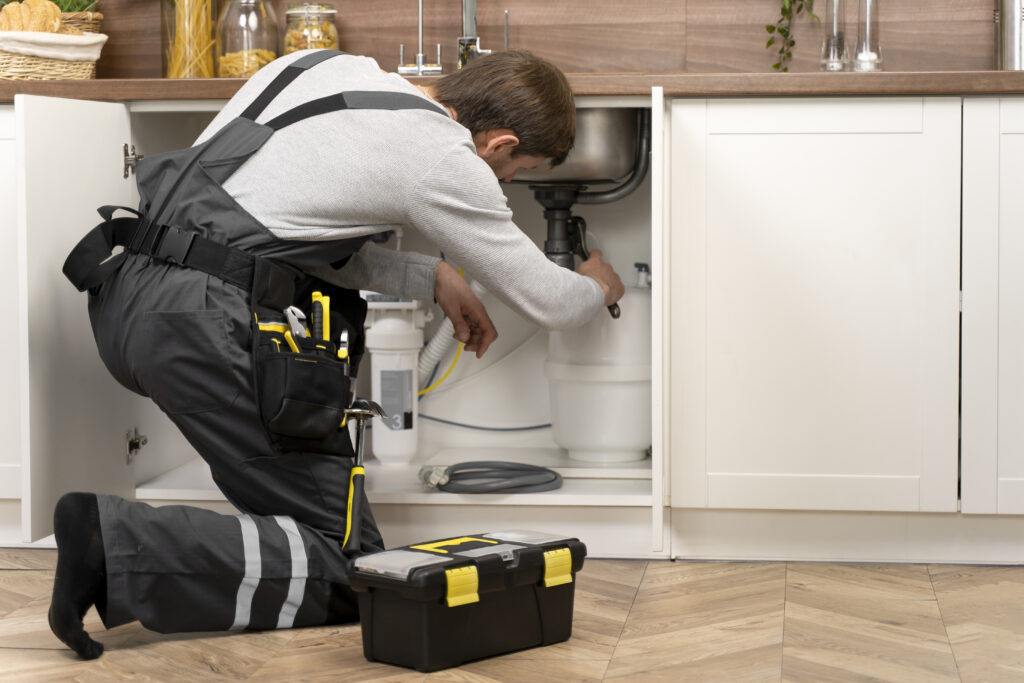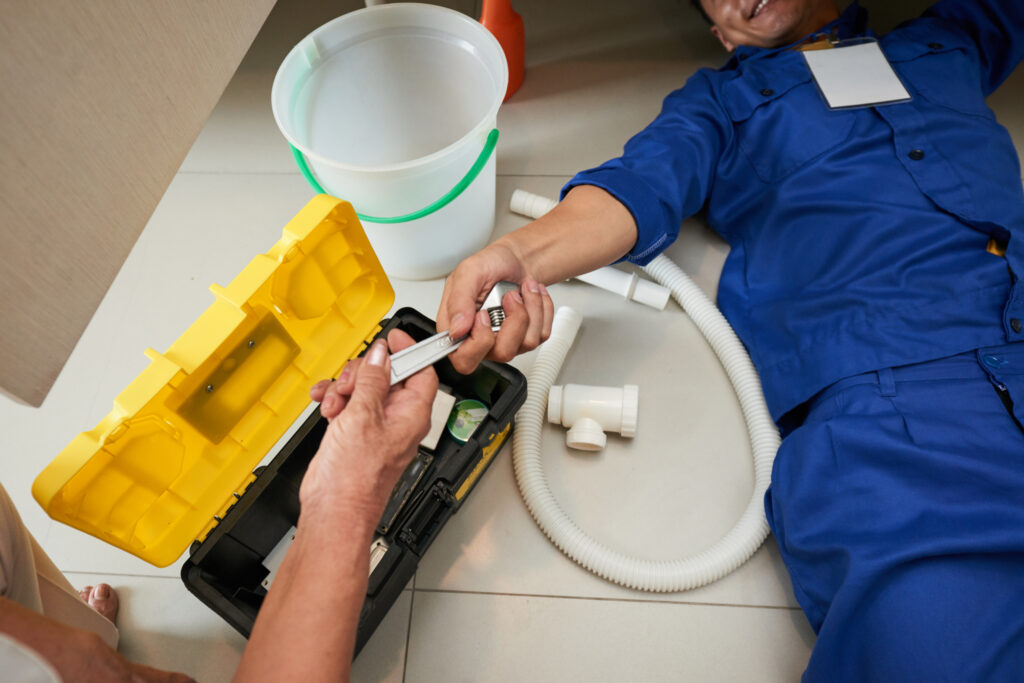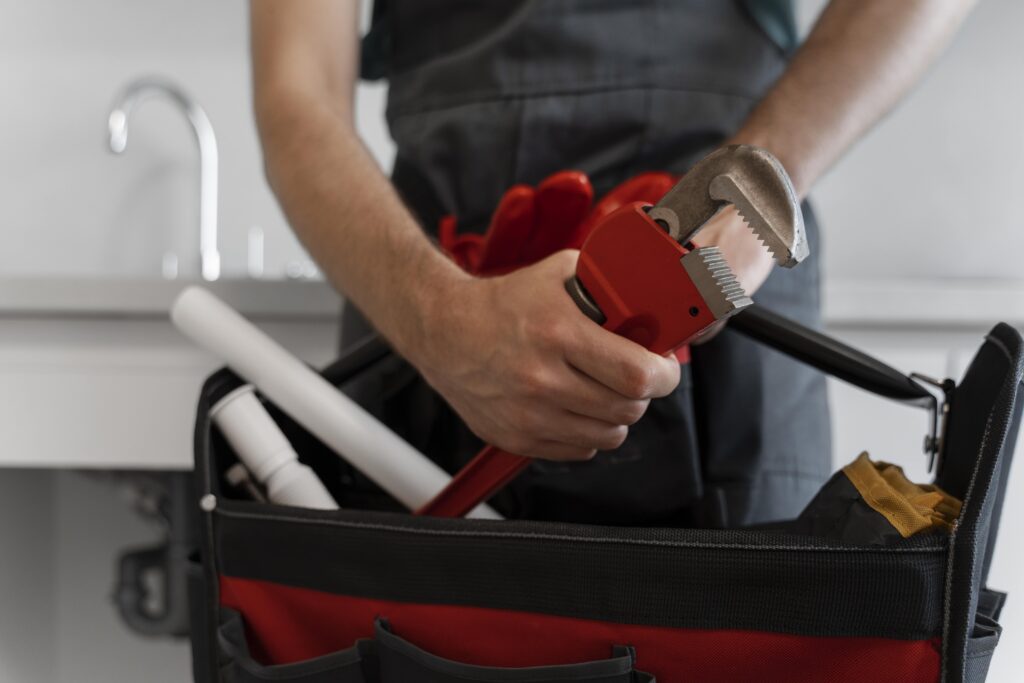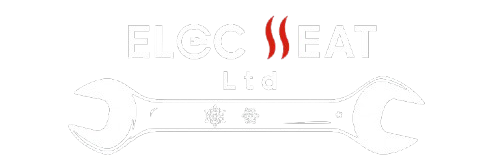Plumbing is one of the most important systems in any UK home, keeping water flowing in and waste flowing out. Yet, even in modern houses, plumbing issues are unavoidable over time. From small leaks to major blockages, knowing the most common plumbing problems and how to address them can save you both money and stress. At Elec and Heat, our experienced team is on hand to provide reliable plumbing services whenever you need them.
In this blog, we’ll walk through the 10 most common plumbing problems in UK homes, their causes, solutions, and prevention tips.
Why Plumbing Problems Are Common in the UK
The UK’s housing stock is among the oldest in Europe, with millions of properties built more than 50 years ago. Many still rely on outdated pipework or plumbing installations that were not designed for today’s water usage. Even in new homes, mistakes during installation or hard water deposits can cause problems.
The damp climate also contributes to leaks, rust, and pipe wear. This combination makes plumbing maintenance a frequent need for UK homeowners.
1. Leaking Taps
A dripping tap may seem like a minor issue, but it is one of the most reported plumbing problems in the UK. Besides the constant annoyance of the drip-drip sound, leaking taps waste significant amounts of water. According to Waterwise UK, a single dripping tap can waste over 5,000 litres of water annually.
Causes:
- Worn or damaged washers
- Loose or corroded O-rings
- High water pressure
- Old or faulty tap fittings
Solutions:
Most leaking taps can be fixed by replacing the washer or cartridge inside the tap. For modern mixer taps, a new ceramic cartridge may be needed. If the tap body itself is corroded, replacement is the best option.
Prevention:
Have taps serviced regularly, avoid over-tightening, and monitor water pressure in your home to reduce strain on components.
2. Blocked Drains
Blocked drains are a headache for many homeowners. They cause slow drainage, unpleasant odours, and can even lead to flooding inside or outside your home if left untreated.
Causes:
- Hair, soap scum, and grease build-up
- Foreign objects flushed or washed down sinks and toilets
- Leaves and debris in outdoor drains
- Broken or collapsed underground pipes
Solutions:
For minor clogs, a plunger or drain snake may solve the problem. For stubborn blockages, professional drain jetting services are often required. Avoid chemical drain cleaners as they can damage pipes over time.
Prevention:
Install drain guards, avoid pouring fats or oils down the sink, and have drains inspected annually if your property is prone to blockages.

3. Low Water Pressure
Low water pressure is another widespread complaint in UK households, especially in older properties. It makes showers less enjoyable and dishwashing time-consuming.
Causes:
- Limescale build-up inside pipes and taps
- Hidden leaks reducing water flow
- Partially closed stopcocks
- Issues with the local water supply
Solutions:
Cleaning or replacing aerators and showerheads often helps. If the problem persists, check for leaks or call a plumber to inspect the system. In some cases, installing a water pressure booster pump can restore good flow.
Prevention:
Regular descaling, leak checks, and proper system maintenance can prevent pressure drops.
4. Running Toilets
A running toilet can waste hundreds of litres of water daily and inflate your water bill. Many UK households experience this without realising the cause.
Causes:
- Worn flapper valves that don’t seal properly
- Broken float mechanisms
- Leaky refill tubes
Solutions:
Replacing the flapper or float mechanism usually solves the issue. A plumber can also help diagnose whether the cistern itself needs replacement.
Prevention:
Inspect toilet cisterns regularly and replace old parts before they completely fail.
5. Burst Pipes
Burst pipes are one of the most serious plumbing emergencies in UK homes. They often happen during winter when water freezes inside pipes, expanding and causing them to rupture.
Causes:
- Freezing temperatures
- Corroded or old pipework
- Excessive water pressure
Solutions:
If a pipe bursts, turn off the main water supply immediately and call a plumber. Damaged sections will need replacing, and any resulting water damage should be addressed quickly.
Prevention:
Insulate pipes in lofts, basements, and external walls. Maintain heating during cold spells and check pressure regulators regularly.
6. Boiler Problems
Since most UK homes rely on boilers for both heating and hot water, any malfunction can disrupt daily life. Boiler issues are especially common during the colder months.
Causes:
- Pilot light going out
- Low boiler pressure
- Limescale build-up (kettling)
- Faulty thermostats or valves
Solutions:
Repressurising the boiler or bleeding radiators can solve some issues. For complex faults, a Gas Safe registered engineer must carry out repairs.
Prevention:
Annual boiler servicing, flushing out sludge, and installing water softeners in hard water areas can prolong boiler life.

7. Leaking Radiators
Central heating systems in the UK often develop radiator leaks. These can reduce efficiency and cause water damage if ignored.
Causes:
- Corrosion inside the radiator
- Loose valves or pipe connections
- Pressure issues in the heating system
Solutions:
For small leaks, tightening connections may help. Larger leaks may require radiator replacement. Adding inhibitor fluid to your system helps reduce corrosion.
Prevention:
Flush heating systems every few years and ensure valves are regularly serviced.
8. Noisy Pipes (Water Hammer)
Noisy or banging pipes, often called “water hammer,” are a common complaint in older UK homes. While not always dangerous, they can indicate an underlying problem.
Causes:
- Sudden changes in water pressure
- Loose pipework
- Faulty valves
Solutions:
Securing loose pipes, adjusting water pressure, and replacing faulty valves can resolve the issue. In persistent cases, a plumber may install water hammer arrestors.
Prevention:
Keep your plumbing system regularly maintained and check pipe supports in lofts or basements.
9. Faulty Shower Units
Showers are heavily used in UK households, so breakdowns are common. Issues range from poor water flow to fluctuating water temperatures.
Causes:
- Limescale build-up in showerheads
- Worn-out cartridges or thermostatic valves
- Electrical faults in electric showers
Solutions:
Cleaning showerheads, replacing cartridges, or calling an electrician for wiring faults are typical fixes. If the shower unit is old, replacement may be more cost-effective.
Prevention:
Regular descaling and servicing keep shower units in good condition.
10. Sewage Backups
Sewage backups are one of the most unpleasant plumbing problems. They not only create foul smells but also pose health hazards.
Causes:
- Severe blockages in main sewer lines
- Tree root intrusion into pipes
- Collapsed or broken underground drains
Solutions:
Professional drainage companies can use CCTV inspections to locate the cause and clear or repair the sewer line. In severe cases, excavation may be necessary.
Prevention:
Regular drain surveys, avoiding flushing non-biodegradable items, and cutting back tree roots near drains reduce the risk of sewage backups.

Extra Tips for Maintaining a Healthy Plumbing System
- Schedule annual plumbing inspections
- Insulate pipes in cold weather
- Use strainers in sinks and showers to prevent clogs
- Know the location of your stopcock for emergencies
- Fix small leaks quickly before they turn into major issues
Conclusion
Plumbing issues are a fact of life for UK homeowners, but with proper maintenance and timely repairs, most can be managed effectively. Whether it’s a dripping tap, a blocked drain, or a more serious burst pipe, knowing the common problems helps you act quickly.
Regular check-ups, responsible water use, and calling professionals when necessary will keep your plumbing system running smoothly for years to come and will avoid Common Plumbing Problems in UK Homes.
Remember: If you’re unsure about tackling a plumbing repair yourself, it’s always safer to call a qualified plumber to avoid worsening the problem.








